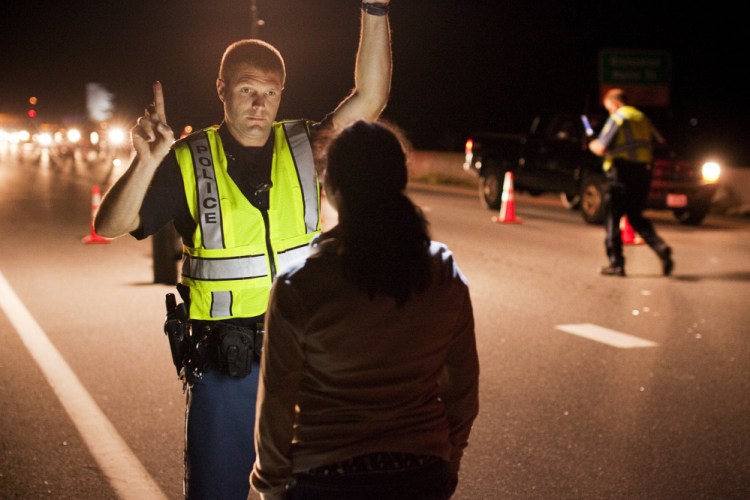A relentless focus on the consequences of drunken driving has made it culturally unacceptable and personally not worth the risk. But to a relative few, the scorn of neighbors and the punishments now available to Maine prosecutors are just not enough. To keep the roads safe from these repeat offenders, we have to do more than take away their ability to legally drive.
Most people who are caught driving while drunk – 115,607 dating back to 1980 – are scared straight by that experience and find a way to never repeat it.
Others, however, are not stopped by license suspensions, fines and even jail time. About 350 people have nine or more convictions in Maine for operating under the influence, according to a recent report from the Maine Sunday Telegram. More than 16,000 have four or more OUI convictions.
It’s not that Maine’s laws are lax. We were the second state to implement a mandatory penalty for a first-time OUI, the third to lower the blood-alcohol limit to 0.08 percent and one of the first to enact harsh punishments for repeat offenders.
Now, a first conviction brings a five-month license suspension and a $500 fine, plus steep attorney’s fees. A fourth conviction brings an eight-year suspension, nearly seven months in jail and a $2,500 fine.
Since 2014, courts have been allowed to consider all prior felony OUIs when deciding penalties, not just the prior 10 years as before. A third conviction is now an automatic felony.
Still, that doesn’t keep repeat offenders off the roads, in large part because Maine is a rural state where a car is pretty much a necessity, especially for the sake of employment, and because these drivers are clearly dealing with alcohol addiction.
Suspensions clearly don’t matter to them, so neither would permanently revoking their license.
And while the roads are safe when they are in jail, that is a poor outcome, expensive to taxpayers and unhelpful to the drivers, who won’t get the help they need behind bars, and are likely to reoffend.
“It doesn’t matter what penalty you throw at them,” Secretary of State Matthew Dunlap told the Telegram. “They’re not going to get the hint – it’s a chemical dependency issue.”
That means Maine has to look to other avenues to keep repeat drunken drivers from causing tragedy.
One way is through ignition interlock systems, which require the user to pass a breath test in order to start and continue to drive their vehicle. Now, first-time offenders in Maine can request an ignition interlock system, at their cost, to get an early reprieve from suspension.
Broadening the use of such systems is the kind of reform Maine should consider – unlike license suspensions or revocations, it would allow people to drive when they are sober, and it would keep offenders from driving drunk.
Copy the Story LinkSend questions/comments to the editors.



Success. Please wait for the page to reload. If the page does not reload within 5 seconds, please refresh the page.
Enter your email and password to access comments.
Hi, to comment on stories you must . This profile is in addition to your subscription and website login.
Already have a commenting profile? .
Invalid username/password.
Please check your email to confirm and complete your registration.
Only subscribers are eligible to post comments. Please subscribe or login first for digital access. Here’s why.
Use the form below to reset your password. When you've submitted your account email, we will send an email with a reset code.